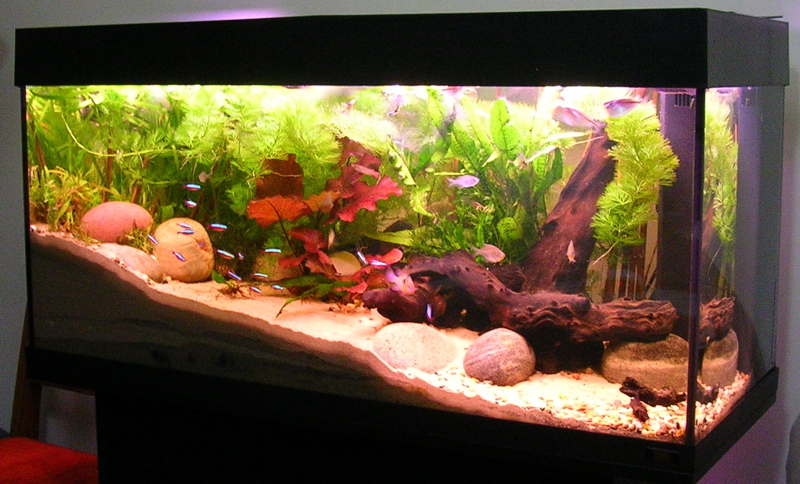These bodies of water unable to support fish life you speak of are easily recognised as places where no one in their right mind would put their fish in the first place. It would be obviously fatal for them because of the look of it and the smell.
Not so, in many cases the water is not "polluted" and is able to support fish most of the year and may even be quite healthy, it is only during certain seasons (typically winter) where, for various reasons the oxygen levels drop too low to support fish. Often this is because of an abundance of decaying plant mater and algae, but often it is a combination of things including a thick prolonged ice layer in the winter. But your statement in your first post that nature will take care of itself in a natural habitat (bodies of water) isn't valid as fish die off in natural bodies of water, especially smaller lake and ponds, is a common occurrence. As pond owners we don't want that to happen to our ponds and one step to preventing that may be to remove excess detritus, especially before winter freeze up, especially those with smaller or heavily stocked ponds.
The only way I have ever lost fish is because of predation by a heron but never because the pond has become polluted. There are wind born weed killer chemicals in common use equally lethal to fish.
This debate has uncovered a deep division of opinion on , the topic of pond cleaning and both sides can't be right but both can be wrong! I shall stick with the pond which is cleaned naturally! Also I don't understand your comment about "unequal filtration systems". Please explain.
I'm not suggesting or even disputing that your system is working for you, I'm just disputing that your advice that leaving all the mulm and detritus in a pond is the best plan for the majority of pond owners.
I'm curious as to the specs of your pond? I'm guessing in is more then a couple thousand gallons. The shape, skimmer?, and what type of filters system you have for it with what sort of water turn over? I'm guessing that as Meyers indicated it's must be fairly large. Some pictures would be nice.
As to understanding my comment about "unequal filtration systems" I thought that would be pretty obvious, but I'll explain..... You said in an earlier post
"Nature will sort it out much better than humans. But be sure to attend to filtration and that's about it". What I mean is that there are many types of filters people use in there backyard ponds, some might be very effective, but some might be totally ineffective, and in a situation where there is a lot of excess waste and detritus in a pond a serious situation would be more likely to develop in a pond that has an ineffective filtering system, no mater how much the pond owner "
attends" to it.
Keep in mind there are generally two basic types of filtration used in ponds, biological filtration and mechanical filtration, and both are very important. Just focusing on the mechanical filtration for a second, the basic function of a mechanical filter is to capture excess detritus so it can be removed from the water cycle. One would have to ask if this stuff (detritus) is so great why should anyone be at all concerned with trying to filter it out of our pond water?
The answer is because although a little bit may be OK (maybe even beneficial), and some ponds can even handle a moderate amount, there is a point that even the biggest ponds (and lakes) can be overwhelmed and the oxygen consumption of all that decaying excess detritus can compete with the oxygen demands of the fish leading to an unhealthy or even fatal situation.
PS. You have a nice days as well.






